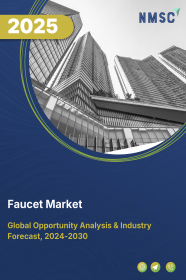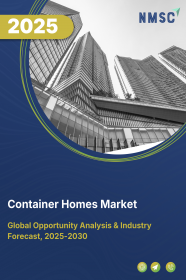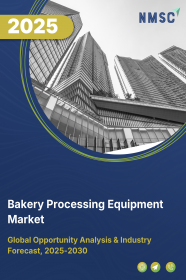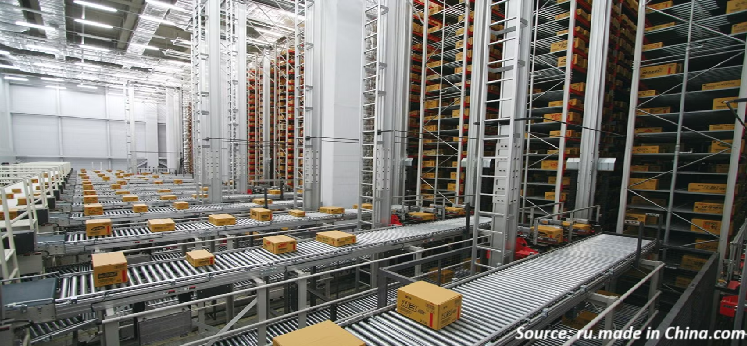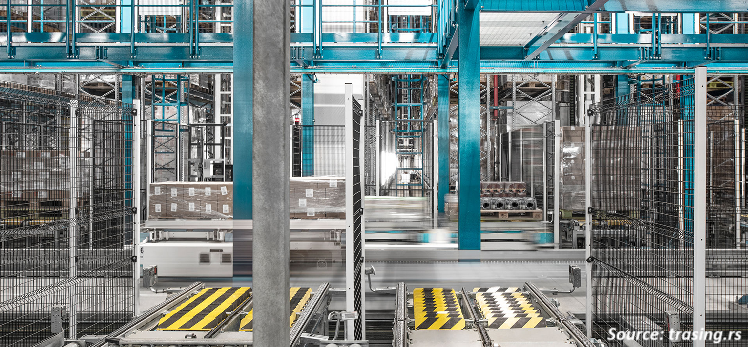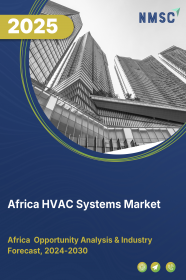
Africa HVAC Systems Market by Equipment (Cooling Equipment, Heating Equipment, and Ventilation), by Implementation Type (New Construction and Retrofit), and by End User (Residential, Commercial, and Industrial) - Opportunity Analysis and Industry Forecast, 2024– 2030
Industry: Construction & Manufacturing | Publish Date: 19-Mar-2025 | No of Pages: 169 | No. of Tables: 130 | No. of Figures: 75 | Format: PDF | Report Code : CM1955
Market Definition
The Africa HVAC System Market size was valued at USD 2.60 billion in 2023, and is predicted to reach USD 5.23 billion by 2030, at a CAGR of 9.9% from 2024 to 2030.
HVAC (Heating, Ventilation, and Air Conditioning) refers to the technology and systems used in buildings to regulate indoor environmental conditions such as temperature, humidity, and air quality to ensure comfort and safety for occupants. Heating systems provide warmth during colder months, ventilation systems circulate and replenish indoor air, and air conditioning systems cool and dehumidify indoor air during warmer months.
HVAC systems offer several advantages, including improved occupant comfort and health, increased energy efficiency leading to cost savings, better indoor air quality through filtration and ventilation, precise temperature control for enhanced productivity in commercial settings, and protection of building infrastructure from extreme weather conditions. Additionally, these systems can be designed to meet specific requirements, contributing to sustainability goals by reducing carbon emissions and promoting eco-friendly practices in building operations.
Environmental Concerns Drive Growth in the HVAC Systems Industry
The HVAC systems industry is experiencing significant expansion fueled by environmental considerations. With escalating concerns regarding climate change, air quality, and ozone depletion, there is a heightened focus on sustainable practices and regulatory adherence. Governments globally are enacting policies to minimize the environmental impact of HVAC systems, driving innovation in eco-friendly solutions.
Additionally. environmental concerns are a driving force behind the growth of the HVAC systems industry. Heightened awareness of climate change, air pollution, and ozone depletion has intensified the push for sustainable practices and regulatory compliance. Governments around the world are implementing measures to mitigate the environmental impact of HVAC systems, prompting manufacturers to invest in eco-friendly technologies.
Growing Demand for Improved Indoor and Outdoor Air Quality Drive the HVAC System Market
The surging demand for improved indoor and outdoor air quality is propelling the HVAC system market forward. Growing awareness about the importance of air quality is motivating both residential and commercial property owners to invest in HVAC systems capable of filtering and purifying indoor air effectively while reducing outdoor emissions.
As a result, there is an increasing need for advanced HVAC systems equipped with modern filtration technologies such as HEPA filters and UV-C light sterilization to eliminate pollutants, allergens, and pathogens from indoor environments. This trend is pushing HVAC manufacturers to innovate and introduce new solutions that prioritize air quality enhancement, driving the growth of the HVAC system market.
Price Volatility of Raw Materials Restrains the Growth of the HVAC system Market
The surge in raw material expenses, fueled by inflation and supply chain disruptions, poses challenges to the manufacturing costs associated with HVAC systems. The heightened costs of fundamental raw materials such as steel, copper, and aluminum significantly elevate production expenses for HVAC manufacturers.
Consequently, small and mid-scale HVAC enterprises encounter margin constraints, affecting profitability and restricting investments in research and development. This, in turn, constrains market expansion.
Integration of Solar-Powered HVAC Systems Creates Opportunity Growth for the Market
Solar-powered HVAC systems, utilizing photovoltaic technology to power heating, ventilation, and air conditioning operations, emerge as a promising avenue for market expansion within the HVAC industry.
Through the deployment of these systems, equipped with solar panels positioned on rooftops or designated areas, consumers can substantially decrease reliance on grid electricity, resulting in notable energy cost reductions. With ongoing advancements in solar panel efficiency, energy storage capabilities, and system integration techniques, solar-powered HVAC solutions are progressively becoming economically viable.
Furthermore, these systems contribute to carbon emission reduction and advocate sustainability, in harmony with escalating environmental concerns and regulatory standards globally. The growing demand for energy-efficient and eco-friendly alternatives among businesses and homeowners accentuates the compelling opportunity for market growth through the widespread adoption of solar-powered HVAC systems, fostering innovation and investment in renewable energy technologies within the HVAC sector.
Competitive Landscape
The market players operating in the Africa HVAC System market include Midea Group Co Ltd., Daikin Industries Ltd., Gree Electric Appliances Inc., Johnson Controls International Plc., Carrier Global Corporation, Trane Technologies Plc., LG Electronics Inc., Panasonic Holdings Corporation, Lennox International Inc., Defy Appliances, Mitsubishi Electric Corporation, Rheem Manufacturing Company, Elsewedy Electric, Airedale International Air Conditioning, Siemens AG, and others.
Africa HVAC System Market Key Segments
By Equipment
-
Cooling Equipment
-
Unitary Air Conditioners
-
Variable Refrigerant Flow Systems (VRF)
-
Chillers
-
Room Air Conditioners
-
Coolers
-
Cooling Towers
-
-
Heating Equipment
-
Heat Pumps
-
Furnaces
-
Unitary Heaters
-
Boilers
-
-
Ventilation
-
Air-handling Units (AHUs)
-
Air Filtration Systems
-
Ventilation Fans
-
HRVs & ERVs
-
Air Purification Systems
-
Others
-
By Implementation Type
-
New Construction
-
Retrofit
By End User
-
Residential
-
Commercial
-
Industrial
KEY PLAYERS
-
Midea Group Co Ltd.
-
Daikin Industries Ltd.
-
Gree Electric Appliances Inc.
-
Johnson Controls International Plc.
-
Carrier Global Corporation
-
Trane Technologies Plc.
-
LG Electronics Inc.
-
Panasonic Holdings Corporation
-
Lennox International Inc.
-
Defy Appliances
-
Mitsubishi Electric Corporation
-
Rheem Manufacturing Company
-
Elsewedy Electric
-
Airedale International Air Conditioning
-
Siemens AG
REPORT SCOPE AND SEGMENTATION:
|
Parameters |
Details |
|
Market Size in 2023 |
USD 2.60 Billion |
|
Revenue Forecast in 2030 |
USD 5.23 Billion |
|
Growth Rate |
CAGR of 9.9% from 2024 to 2030 |
|
Analysis Period |
2023–2030 |
|
Base Year Considered |
2023 |
|
Forecast Period |
2024–2030 |
|
Market Size Estimation |
Billion (USD) |
|
Growth Factors |
|
|
Companies Profiled |
15 |
|
Market Share |
Available for 10 companies |
|
Customization Scope |
Free customization (equivalent up to 80 working hours of analysts) after purchase. Addition or alteration to country, regional, and segment scope. |
|
Pricing and Purchase Options |
Avail customized purchase options to meet your exact research needs. |

















 Speak to Our Analyst
Speak to Our Analyst



